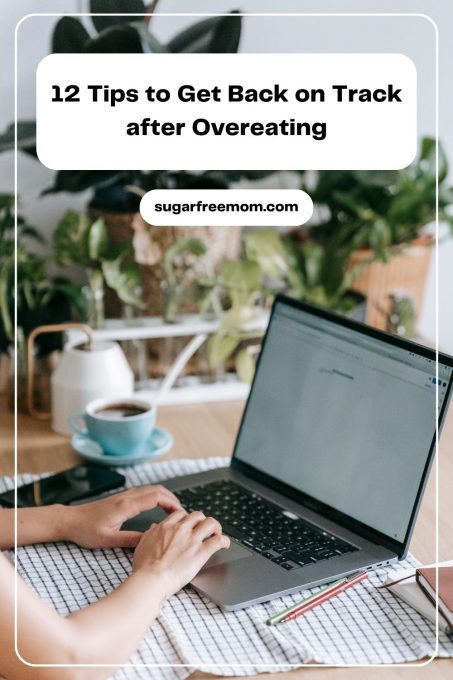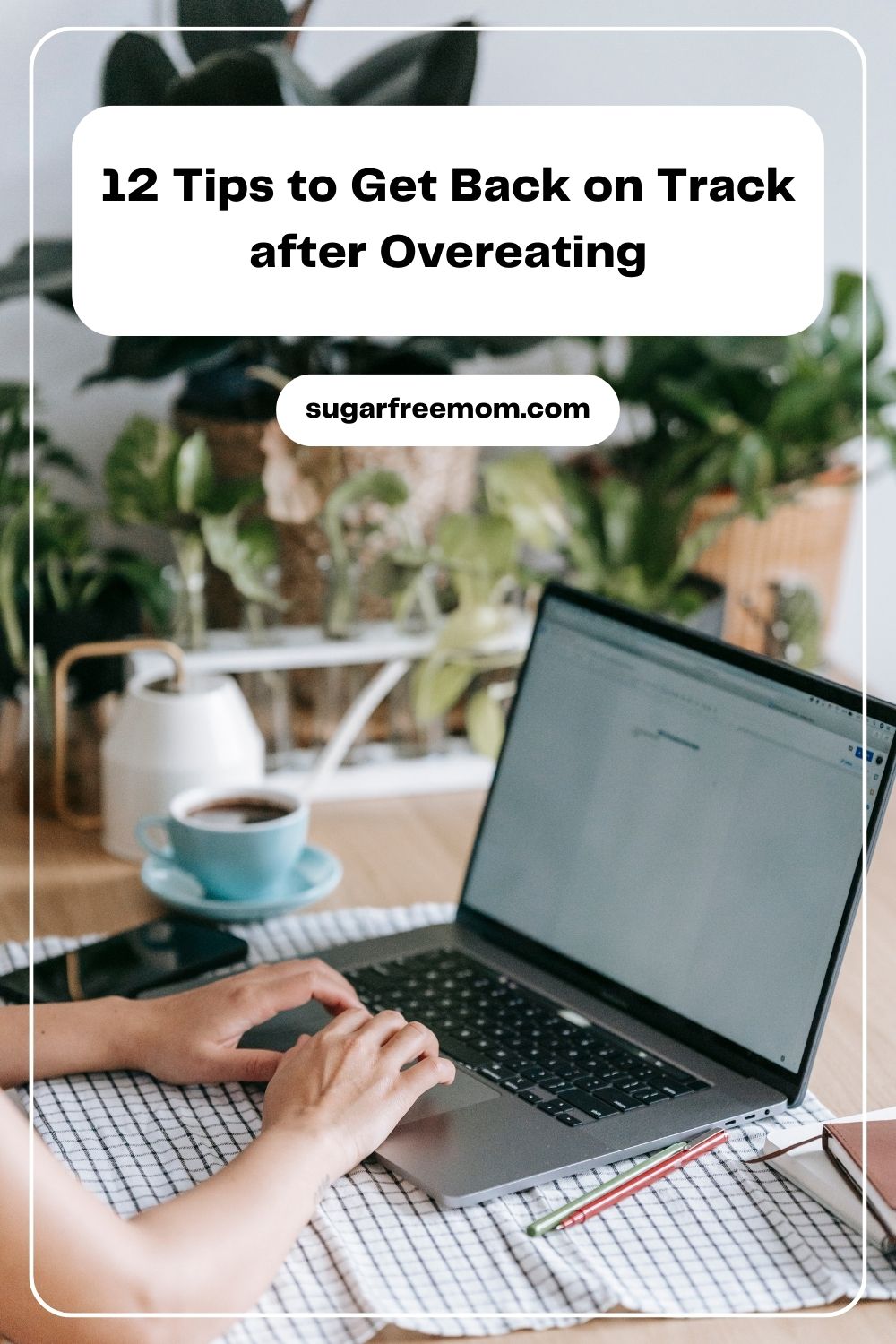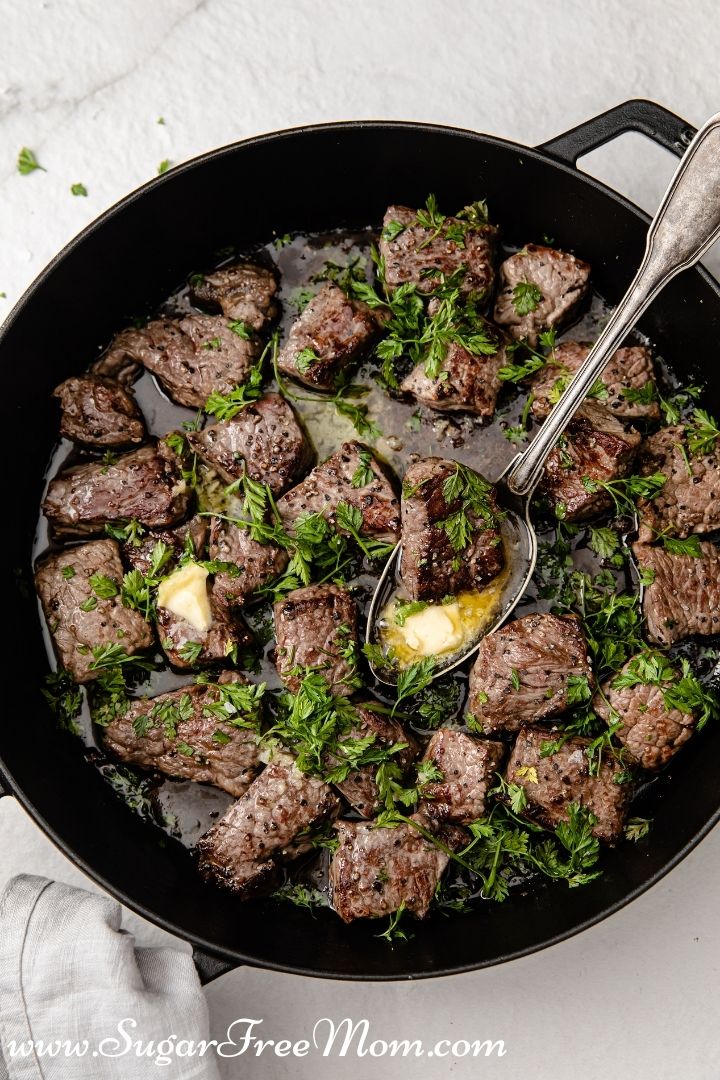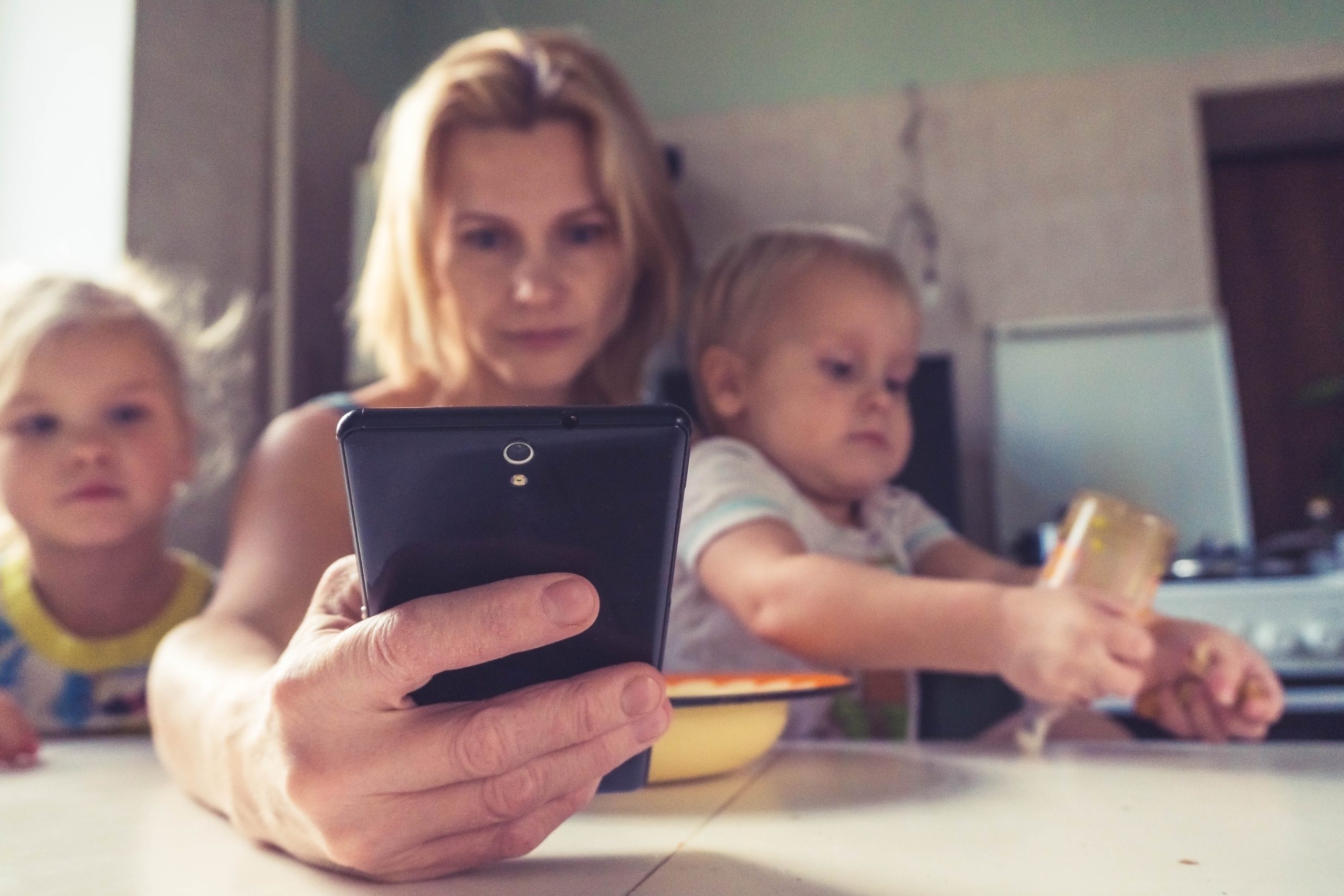

If you've been indulging too much during the holiday season and those extra calories have added some weight gain, incorporate these tips to get back on track right now.

When you're on a quest to lose weight, one day or meal of overeating isn't a cause for alarm as long as you can get right back to your healthy lifestyle the next day or better yet the next meal.
But often that one cheat meal or day of overeating causes a blood sugar spike, which makes all the days following that holiday meal, even harder to get back on track.
The following healthy habits will not only help you reduce food cravings, but will provide the best ways to take care of yourself during stressful times, even holidays, so that you can make healthy choices and stick to your weight loss goals all year long.
The good news is that when you add these 12 Tips on a regular basis, you will quickly get back control of your eating habits no matter the time of year.

1. Stop the Guilt Trip
After eating junk food when you didn't plan, eating second helpings of comfort food, or if it was a day of binge eating, the feelings of guilt are often what causes the "screw it, I already messed up" thought to surface.
This thought alone causes negative feelings and crappy eating the rest of the day.
You can avoid this and end that cycle simply by owning what happened. You overate or ate food you knew wasn't a good idea, and now you need to move on from it.
It's over, you can't go back and fix it or change it, but you can move forward and do the next best thing to take care of yourself right now.
2. Hydrate
When you've had an indulgent day on refined carbs and sugar, you often will have some water retention and bloating. A great way to combat and flush toxins out is through drinking enough water.
I recommend drinking half your ideal body weight in ounces. Often the hunger cues come when you are dehydrated so drink plenty of water to avoid misleading hunger cues.
When you drink extra water than you often do, you also flush out minerals. Add some electrolytes to a water bottle and you will be feeling much more energetic rather than lethargic from sugar withdrawals.
PKD Foundation, "Hunger vs. Thirst: Tips to Tell the Difference," PKD Foundation blog.

3. Physical Activity
The most important thing you can do to release the extra glucose from your overeating day or meal, is to get in some form of movement or light exercise.
Going for a walk, doing some yoga or pilates, or getting in a good sweaty workout, will make your body use that extra glucose as fuel during the exercise.
20 minutes of intense exercise is an easy way to increase dopamine naturally which will improve your mental health as well!

4. Make a Food Plan
If you've removed the shame, hydrated and gotten in some movement, now is the time to make a game plan for your healthy eating.
When you plan ahead you use the part of your brain called the prefrontal cortex which is what I like to call the adult brain, the sensible part which cares about your long term goals, and isn't prone to impulse decisions.
So eating plans that are made ahead of time are the ones that are often followed through with because you wrote it down and planned your healthy meals.
Write down exactly what you plan to eat for the next 24 hours. Plan portion sizes too so nothing is a guess.
Use a tracking app like Cronometer to figure out how much healthy fats, protein and calories is right for your body and health goals.
Fewer carbs or fewer calories, is up to you, but knowing what you are putting into your mouth and how much, is the helpful data you need for any weight loss journey.
Mindful eating makes you less susceptible to an impulsive food binge.
Try the 5 Day Sugar Detox Challenge here!

5. Increase Protein
Whether you choose lean protein, or high fat protein, eat more protein than you normally do.
Protein is the key to help satiate and reduce cravings, especially if you are struggling with withdrawal symptoms from high carb and sugary foods.
When your body gets the nutrient dense protein it needs from whole foods, you will reduce your chances to give in to temptations.
Wolf, R. Wired to Eat: Turn Off Cravings, Rewire Your Appetite For Weight Loss, and Determine The Foods That Work for You (New York: Harmony, 2017).
6. Remove Temptations
A good way to avoid going back to the very foods you want to stay away from, is the old saying, "out of sight, out of mind". While this might not be the case for all emotional eating, it is helpful to not constantly see your favorite foods that you are trying to avoid.
Your brain remembers how good these taste once you see them, so avoid that by getting them out of your sight. Contrary to what many believe, eating a small amount does not take the craving away, it only intensifies it, if you are a sugar addict.
Food restriction from sugar is the key to diminish cravings.
Pursey, K. M., P. Stanwell, A.N. Gearhardt, C.E. Collins, and T.L. Burrows, "The Prevalence of Food Addiction as Asses by the Yale Food Addiction Scale, A Systematic Review," Nutrients 6, no.10 (2014): 4452-90
7. Go to Bed Earlier
The next time you feel like you're having a hard time resisting sugar or refined carbs, evaluate how many hours of sleep you got the night before. If less than 7 hours and it wasn't a restful, good nights sleep, that's often one of the culprits.
When you don't get enough sleep, it makes you more irritable and choosing a healthy snack more unlikely. You're body is asking for more food just to stay awake during the day.
Drink water then head to bed a little bit earlier than usual. It will not only help you get in that restorative sleep you need, but will also help avoid the late night snacking.
Pitcher, J.J., D.M. Morris, J. Donnely, and H.B. Feigl, "Interactions Between Sleep Habits and Self Control," Frontiers in Human Neuroscience 9 (2015): 284.
8. Intermittent Fast
Intermittent fasting is another way to use up excess glucose when you've had an overeat or a higher calorie intake. When you have no food intake, this allows your digestive system to rest rather than digest food.
Intermittent fasting also helps to regulate your hunger and satiety hormones, ghrelin and leptin. Just shortening your eating window every single day can be helpful to remove glucose, especially after a big meal that may be heavy in sugar and carbs.
It is an effective free tool to use so that your body can use it's own fat stores as fuel.
Fung, J. and J. Moore. The Complete Guide to Fasting: Heal Your Body Through Intermittent, Alternate day and Extended Fasting (Las Vegas, NV. Victory Belt Publishing, 2016).

9. Avoid the Scale
After an overeating meal or holiday, it's best to just avoid the scale the next morning.
We don't need the scale number to tell us what we already know.
Bloating, water retention and regret are enough, so rather than adding insult to injury, just avoid the scale for a day or two while you get yourself back in the game of your healthy diet routine.
10. Practice Mindfulness
Overall health can be greatly improved with a mindful practice at the start of each day.
Whether you choose to practice simple breathing techniques for 5 minutes a day or listen to a guided meditation on the Calm app, begin your day with a fresh start.
A mindful practice can provide a great sense of calm and is a wonderful coping mechanism during times of stress, or when food triggers or environmental triggers occur, especially during the holiday season.
Schwartz. J.M., and S. Begley, The Mind and the Brain: Neuroplasticity and the Power of Mental Force. (New York: ReganBooks, 2002).

11. Reach Out for Support
Rather than reach for ice cream when you're upset, reach out to a friend or accountability buddy. A healthy relationship with someone who is also working on the same goals in a healthy way can be all you need when times are hard.
Being able to have that person to vent to can be effective in not going back to emotional eating and soothing with food.
12. Review your Goals
Even in the last month of the year, it's always a good idea to assess your current weight loss goals and strategies.
You can decide if trying to lose weight during the holiday season is realistic and attainable for yourself. It's not a big deal if you decide that you will maintain your weight instead.
There's no shame on any holiday to eat delicious food that you enjoy. The problem only happens when we overindulge with too much food that causes blood sugar spikes and cravings making it difficult to get back on track.
Eating desserts that don't spike blood sugar allows you to enjoy during the holidays without sacrificing your goals.
Sometimes the greatest gift you can give yourself after overeating is to simply move forward and let it go. Choose a balanced diet that works for your body and add these 12 great ideas to your life today so you can avoid any future binge.
Watch this Free Masterclass: 3 Key Strategies to Survive the Holidays Sugar Free

Brenda Bennett is a certified Nutritional Therapy Practitioner, certified Sugar Detox Coach, certified Keto Coach and certified Life Coach. She has written 2 cookbooks, Sugar-Free Mom, and Naturally Keto and her 3rd book The 30-Day Sugar Elimination Diet, is a four part program to help you detox from sugar, eliminate cravings, balance blood sugar and lose weight all while eating a delicious, nutrient dense whole food meal plan that offers two tracks to follow, low carb or keto. She is the founder of the Sugar Free Fresh Start course and Sugar Free Tribe weight loss membership.
0 comments :
Post a Comment